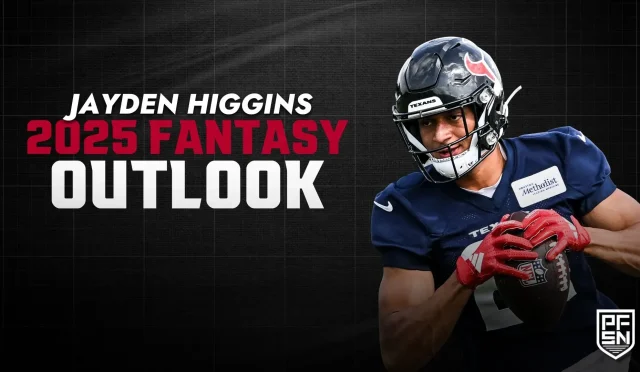Steven Gerrard, born on May 30, 1980, in Whiston, England, stands as a towering figure in football history, celebrated as a Liverpool FC legend. His remarkable journey began when he joined Liverpool’s youth setup at the tender age of nine, ultimately debuting for the first team in 1998. Over his illustrious career, Gerrard evolved into one of the most complete soccer players in England, renowned for his leadership and tenacity on the pitch. His pivotal role as captain helped secure Liverpool’s monumental 2005 Champions League victory, further cementing his legacy among football history legends. After an impactful stint as a player, he transitioned into management, taking charge of clubs like Rangers and Aston Villa, showcasing the same passion and dedication that defined his playing days.
In the realm of association football, Steven Gerrard is a name that resonates with fans around the globe. His early days at Liverpool FC set the stage for a stellar career that would see him lauded as one of the finest midfielders in modern football. As both a player and later as a coach, Gerrard’s impact on the pitch was undeniable, leading his team to numerous triumphs and etching his name in the annals of sport. The progression from a promising youth talent to a revered soccer manager is an inspiring narrative for aspiring athletes everywhere. By fostering his legacy through coaching, Gerrard continues to influence the next generation of soccer players in England and beyond.
The Rise of Steven Gerrard at Liverpool FC
Steven Gerrard’s journey as a player began in the youth ranks of Liverpool FC, where he was scouted at the tender age of nine. His dedication and skill quickly earned him a spot in the youth team, and by the age of 17, he turned professional. His debut for the first team came in 1998, and he rapidly became known as one of the most complete footballers of his generation. Gerrard’s hard work and determination led to him establishing himself as a vital member of the Liverpool squad, showcasing his talent in significant matches and earning accolades such as the Young Player of the Year award during the 2000-01 season.
Throughout his early career, Gerrard played a pivotal role in Liverpool’s success, contributing to the club’s triumphs across several competitions. He was instrumental in leading Liverpool to glory in the League, FA Cup, and UEFA competitions, defining his early years and solidifying his status as a Liverpool FC legend. His relationship with the club and its fans deepened as he proved time and time again that he could rise to the occasion in crucial moments, capturing the hearts of many football enthusiasts.
Steven Gerrard: A Legacy of Leadership
In 2003, Gerrard was appointed Liverpool’s captain, a leadership role that he embraced with passion and responsibility. Even at the young age of 23, he showcased a level of maturity and skill on the pitch that few could match. Under his captaincy, the club clinched their first UEFA Champions League title in over two decades in the 2004-05 season. The iconic final against AC Milan highlighted Gerrard’s prowess, as he scored a memorable goal that sparked a remarkable comeback for Liverpool. This match not only secured his name in football history but also underlined his ability to inspire those around him.
Gerrard’s leadership extended beyond the field; he was a tactician, a motivator, and a role model for younger players. His passion for Liverpool FC and commitment to excellence set a high standard within the team, driving their ambition in domestic and international competitions. Throughout his vibrant career, Gerrard’s influence as a leader left an indelible mark on the club’s history, earning him recognition among football history legends and ensuring his legacy would be cherished by generations to come.
Steven Gerrard’s International Career with England
Steven Gerrard’s impact was not limited to club football; he was a stalwart for the England national team. Making his senior debut in 2000, Gerrard quickly established himself as a key player. Despite injuries affecting his availability, he showcased his talents at major tournaments, including Euro 2004 and the 2006 World Cup. His ability to perform on the international stage further solidified his reputation as one of the best soccer players in England, and he brought his trademark determination to the national colors.
As England’s captain during crucial qualifying matches for the 2010 World Cup, Gerrard was entrusted with leading his country against formidable opponents. Although the team faced disappointments in the tournaments, including an early exit in the 2014 World Cup, Gerrard’s contributions were invaluable. He remains an emblematic figure in the English football narrative, representing both the struggles and aspirations of the national team across two decades.
Throughout his international journey, Gerrard displayed a consistent ability to command the midfield and orchestrate play, often being the link between defense and attack. His leadership qualities shone through during high-pressure moments, rallying his teammates in times of need. Although England didn’t always achieve the anticipated success in tournaments, Gerrard’s unwavering commitment and skill ensured that his legacy within the national team would be remembered by fans and future players alike.
Gerrard’s Transition to Management
After an illustrious playing career, Steven Gerrard transitioned into management, beginning with a role as a youth coach at Liverpool FC. His journey continued as he took the helm at Rangers in 2018, where he aimed to replicate the success he had achieved as a player. Under his guidance, Rangers enjoyed a revival, culminating in their first Scottish Premiership title in ten years during the 2020-21 season. This triumph marked a significant milestone in his managerial career and reinforced Gerrard’s status not just as a player, but as a football tactician reshaping a club steeped in history.
Gerrard’s managerial style echoed his playing philosophy – emphasizing teamwork, tactical discipline, and the importance of fostering a strong club culture. The impact he made at Rangers laid the groundwork for his subsequent appointment as manager of Aston Villa in 2021, where he sought to bring similar success to the Premier League. This transition exemplifies how legends like Gerrard continue to influence the game they love, shaping the next generation of talent while building upon their own legacy.
Key Achievements in Steven Gerrard’s Career
Throughout his career, Steven Gerrard has accumulated numerous accolades that highlight his exceptional talent and impact on football. One of his most memorable achievements was leading Liverpool to their incredible Champions League victory in 2005, a match that will be forever etched in football history. His individual accolades include prestigious awards such as the PFA Players’ Player of the Year and the Football Writers’ Association Footballer of the Year, reflecting his status as one of the top soccer players England has ever produced.
Gerrard’s contributions to Liverpool FC extend beyond the trophies; he is remembered as a player who embodied the spirit of the club. As the fifth all-time leading goalscorer for Liverpool, with 186 goals to his name, his influence on the pitch was undeniable. His passion, skills, and ability to perform in the crucial moments not only garnered personal accolades but also solidified his legacy as a Liverpool FC legend.
Gerrard’s Influence on Future Generations
Steven Gerrard’s legacy transcends his time as a player; it is most evident in his influence on young players and aspiring athletes. As he transitioned into management, he took on the role of mentor, instilling the same values and principles that paved the way for his success. Gerrard’s commitment to nurturing talent exemplifies how one of football’s true greats can give back to the sport that shaped him, promoting a culture of excellence and hard work among emerging players.
Moreover, Gerrard’s story serves as an inspiration for future generations of footballers. His journey from the youth ranks to becoming a club captain and a football legend is a testament to what can be achieved through dedication and perseverance. Today, young players look up to Gerrard, not only for his technical ability but also for his leadership and professionalism, qualities that are indispensable in both sporting and personal development.
The Impact of Steven Gerrard on Football Culture
Steven Gerrard’s career has had a profound impact on football culture, particularly in England. As one of the defining figures of his generation, he became synonymous with bravery, resilience, and tactical intelligence on the pitch. His passionate displays for Liverpool FC captured the imaginations of fans around the world and inspired countless young players to aspire to greatness. The way Gerrard played the game—always giving his all—embodies the essence of what it means to be a true sportsman in football history.
Additionally, Gerrard’s commitment to his clubs, especially during times of adversity, paved the way for a renewed emphasis on loyalty in football. His refusal to leave Liverpool FC for lucrative offers from rival clubs reflected a deep-seated commitment that many fans admire. This mindset has influenced the culture of loyalty within the sport, encouraging fans and players alike to value their connections to clubs, reinforcing the deep-rooted traditions of football.
Steven Gerrard’s Return to Premier League Management
After achieving significant success in the Scottish Premiership with Rangers, Steven Gerrard made his much-anticipated return to the Premier League as the manager of Aston Villa in 2021. This move marked a new chapter in his managerial career, as he aimed to replicate his previous success at one of the league’s historic clubs. Gerrard’s understanding of the Premier League—gained from his storied playing career—combined with his tactical acumen, make him well-suited to navigate the challenges of managing in this competitive environment.
At Aston Villa, Gerrard sought to restore the club’s status in the league and emphasized an attacking style of play. His return to the Premier League illustrates the continuation of his legacy, transitioning from one of the top footballers to a promising manager who aims to leave a lasting impact at every club he manages. This journey further emphasizes the evolution of football legends and their capacity to shape the sport, not just through their own performances, but through the development of future talent.
Frequently Asked Questions
What makes Steven Gerrard a Liverpool FC legend?
Steven Gerrard is often regarded as a Liverpool FC legend due to his exceptional skills, leadership, and dedication throughout his 17-year career at the club. He captained Liverpool to their first Champions League title in 21 years during the 2004–05 season and was instrumental in their successes in various domestic competitions, making him an iconic figure in football history.
How did Steven Gerrard rise to fame during his early career?
Steven Gerrard rose to fame in the early 2000s as a standout midfielder for Liverpool FC. After debuting in 1998, he quickly established himself as a key player, winning the English Young Player of the Year award and helping Liverpool secure multiple titles, including the UEFA UEFA Cup and the FA Cup.
What is notable about Steven Gerrard’s role on the England national team?
Steven Gerrard served as captain of the England national team, leading them in major tournaments such as the World Cup and the European Championship. He was known for his powerful midfield presence and playmaking abilities, contributing significantly to the team’s performances in the 2004 and 2006 World Cups.
Why is Steven Gerrard regarded as one of football’s history legends?
Steven Gerrard is considered one of football’s history legends due to his exceptional career achievements, including an impressive array of domestic and international trophies, his unparalleled commitment to Liverpool FC, and his influential role in key matches, such as the famous comeback against AC Milan in the 2005 Champions League final.
What were Steven Gerrard’s contributions as a manager after his playing career?
After retiring from playing, Steven Gerrard transitioned into coaching, starting as a youth coach at Liverpool before becoming the manager of Rangers in 2018. Under his management, Rangers won their first league title in a decade, further solidifying his reputation as a competent football manager.
How did Steven Gerrard impact the game during his time at Liverpool?
Steven Gerrard had a profound impact on Liverpool FC during his time at the club, contributing to a total of 710 appearances and scoring 185 goals. His ability to perform in crucial moments and lead the team through challenging matches helped cement his legacy as a vital part of the club’s history.
What achievements did Steven Gerrard accomplish during his career at Liverpool FC?
During his illustrious career at Liverpool FC, Steven Gerrard won numerous titles, including 2 FA Cups, 3 League Cups, 1 UEFA Champions League, and 1 UEFA Super Cup. His pivotal role in these successes, coupled with his leadership as captain, makes him one of the club’s greatest players.
When did Steven Gerrard retire from professional football?
Steven Gerrard retired from professional football in 2016 after a two-year stint with Los Angeles Galaxy in Major League Soccer (MLS), concluding a storied career that made him a celebrated figure in both English and international football.
What are Steven Gerrard’s career statistics at Liverpool FC?
Steven Gerrard made 710 appearances and scored 185 goals for Liverpool FC, making him one of the club’s top five scorers in history. His contributions to the team’s successes during his tenure have solidified his status as a Liverpool FC legend.
How did Steven Gerrard’s management career start?
Steven Gerrard’s management career began in 2017 when he took on a role as a youth coach at Liverpool FC. He then progressed to become the manager of Rangers in 2018, where he led the team to significant successes in the Scottish Premiership.
| Key Point | Details |
|---|---|
| Early Life | Born on May 30, 1980, in Whiston, England. Joined Liverpool FC youth team at 9. |
| Professional Debut | Debuted for Liverpool’s first team in 1998 and became a regular player the next year. |
| Major Achievements | Key roles in Liverpool’s successes in 2001 (treble), 2005 (Champions League), and more. |
| Captaincy | Appointed Liverpool captain in 2003 at age 23. |
| Contract Dispute | Engaged in a high-profile dispute with Liverpool in 2005 but remained at the club. |
| International Career | Debuted for the England senior team in 2000 and captain during the 2010 World Cup. |
| Coaching Career | Became a youth coach at Liverpool in 2017, managed Rangers in 2018, and Aston Villa in 2021. |
| Honors and Awards | Appointed MBE in 2006, recognized as one of the best midfielders in football history. |
Summary
Steven Gerrard is celebrated not only for his exceptional talent on the field but also for his leadership solidified through his long-standing career at Liverpool FC. From his early days in youth football to captaining his national team, Gerrard’s journey exemplifies dedication, skill, and passion. His impressive contributions helped Liverpool etch an indelible mark in football history, culminating in significant achievements in both club and international play. Today, as a manager, he continues to inspire the next generation of footballers.








